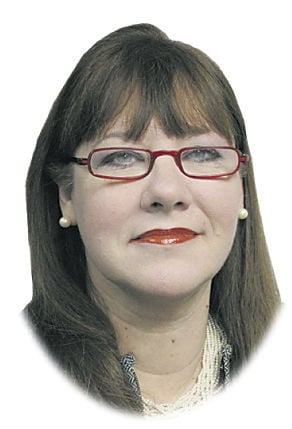Yesterday, after one of my students with a disability read “Care Work: Dreaming Disability Justice” by Leah Lakshmi Piepzna-Samarasinha, she asked me, “Do you think people with disabilities will be fairly counted in the 2020 U.S. Census?”
Before I could answer, she added, “Can you imagine if everyone with a disability voted? We’d have a massive, collective voice protecting our rights.”
Conversing with my student reminded me of a Rutgers University study reported in Time magazine, the July 2019 issue stating that 14.3 million people with disabilities said they voted in 2018, an increase of 8.5 percent. Removing barriers to voting, as well as increasing education and outreach appear to be key factors.
The year before, in 2017, according to the U.S. Government Accounting Office report, “Voters with Disabilities: Observations on Polling Place Accessibility and Related Federal Guidance,” said 60 percent of the 178 polling places they surveyed had one or more potential impediments; steep exterior ramps, lack of signage indicating accessibility and parking or path problems.
Nationally, in 2020, voters with disabilities could represent the largest new group of voters.
Since I’ve been of age to vote, I’ve voted. With the exception of a single year, I’ve voted as a person with a disability.
People with disabilities ask me lots of questions about voting.
When they tell me they don’t know if they’re registered to vote, I refer them to the Secretary of State’s website. There, voters can get information on registering, voting equipment, polling place locations, candidates, etc.
They can also contact their local clerk’s office/website.
All eligible and registered voters in Michigan can now request an absentee ballot without providing a reason. Recently, Michigan Senator Mallory McMorrow introduced Michigan Senate Bill 0569 of 2019 to change election day to a public holiday.
Voters who don’t have transportation to their polling place Nov. 5 can take the BATA bus and get there for free. BATA also has a buddy program for new riders.
There are many online resource sites for voters with disabilities. One such site, #cripthe vote “is a nonpartisan campaign to engage both voters and politicians in a productive discussion about disability issues in the United States, with the hope that disability takes on greater prominence within the American political landscape.”
Others include, The center for an accessible society; Michigan Protection and Advocacy Services; RespectAbility; GetOutThe Vote guides; REV UP:Register, Educate, Vote Use Your Power; vote411.org and U.S. Election Assistance Commission.
For many, increased participation not only includes encouragement to vote, but accessible candidate websites for voters with hearing and vision impairments, more outreach by candidates to learn the concerns of voters with disabilities as well as the hiring of more staff with disabilities in candidate offices. And, for people with disabilities to run for office.
On Friday Nov. 1, the Traverse City Human Rights Commission will host a community panel discussion “Reviving Civility: Quality Conversations in a Polarized World” at Northwestern Michigan College’s Milliken auditorium, 7-9 p.m. Free.
I’ll be co-facilitating with IPR News Director, Noelle Riley. ASL interpreted.
This is the kick-off event to the HRC’s 7-Day Civility Challenge concluding Nov. 9 with a free community meal at Gilbert Lodge at Twin Lakes Lodge at 6800 N. Long Lake Rd. from 5-7 p.m. Everyone welcome. 231-922-4481





















